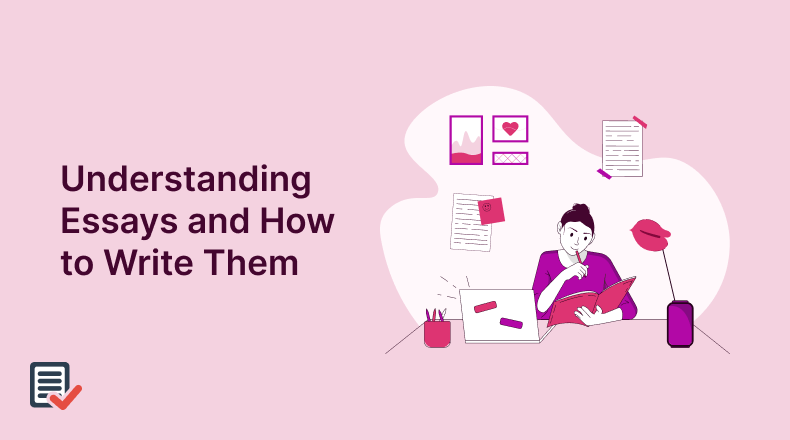
Sometimes the most challenging part about writing a research paper is to effectively cover all the scientific findings while keeping your paper comprehensive and reader-friendly.
Why?
Because the more complex your research ideas are, the simpler your language should be.
So, in short, writing a good quality and reader-friendly research paper requires efficient writing skills and knowledge of English grammar rules.
Although there is no single strategy that guarantees success, you need to focus on clear structure, concise language, and strong arguments to improve your paper.
This article will explain some effective writing tips that will help you make your research paper more reader-friendly.
8 Tips For Writing a High-Quality Research Paper
1. Opt for a Well-Organized Structure
A well-organized structure forms the foundation of a good research paper. It provides a clear roadmap that guides your readers step-by-step through each argument of your paper. All you need is to give your ideas a logical structure with distinct sections. Although there is no general writing format, you can try these ways:
- Firstly, write a compelling introduction that clearly states the research question and its context.
- Take a literature review to present relevant studies and theoretical frameworks in your work.
- Clearly describe the methodology, approach, techniques, and tools used in the research.
- Thoroughly discuss the presented data. Don’t over complicate the situation. Try to keep it as simple and clear.
- Analyze the results and compare them with other research.
- Lastly, summarize key findings and suggest future research directions.
2. Keep Your Sentences Short
Remember, the readers can only better adapt one idea at a time. Therefore using short sentences in your research paper can significantly enhance the readability.
Just think of it this way: long and complex sentences can confuse readers and weaken your argument. Breaking them into shorter and simpler sentences helps you present each idea separately and more clearly.
3. Avoid Jargon and Overly Complex Language
Sometimes when you use overly complex language in your paper, you actually distract your readers from the core message. Instead of focusing on the main findings in your conent, the reader is struggling to understand the jargon first.
Don’t you think it can affect the readability of your paper?
If so, then try to avoid complex wordings as much as possible. Otherwise, thoroughly explain all the technical terms you used in the paper to make it comprehensive for the reader.
4. Cite Sources and Examples Effectively
If you submit your paper without evidence,there is a high risk that it will be returned to you without publishing.
Therefore, it’s necessary to cite every source, fact, and figure you include in your writing to validate your points and support the information. For this, you can opt for different citation techniques like APA, MLA, Chicago, or Harward based on your content requirements.
5. Work on Smoother Transitions
If you don’t want to confuse your readers over a sudden change between ideas, then opt for transitional phrases between sections or ideas to keep your writing cohesive.
Transition words like “however,” “moreover,” and “therefore” can help readers jump from one idea to the other more smoothly. Moreover, they give your content a more personalized look and help you improve the flow and connectivity between ideas.
6. Conclude it Concisely
The conclusion of your research paper is like a brief summary of the key points and the significance of your findings. Therefore, try to mold your conclusion in a way that best covers your research process and core idea.
But do not introduce any new ideas in your conclusion. Remember, the conclusion is meant to provide closure to your writing, not to give it a new head. So, write a concise and clear conclusion that solidifies your argument and leaves a lasting impression on the readers.
7. Seek For Critics’ Opinion
When you write a scientific manuscript, remember someone who might not have expertise in the topic will also read it. Therefore, try to keep it simple and precisely cover all the necessary information without any over-interpretation or repetition. Once done, assess whether each point is covered properly.
For this, you can ask your friends or peers to read your paper to help identify gaps. Their feedback can provide valuable insights. Pay attention to their questions and perspectives to better analyze the gaps in your writing. Remember, these small tweaks can make a huge difference in how the reader perceives the information. So, if possible, then ask a native speaker to review your paper to highlight any possible language issues.
8. Proofread and Edit
After writing, the most important step is to proofread your paper thoroughly and correct any mistakes. Repeat this process two or three times until you’re satisfied. Grammatical errors can distract readers and hurt your credibility.
Therefore, whenever you write something, edit it repeatedly to eliminate any grammar, spelling, style, or punctuation issues. Fixing all the issues in your writing will give it a more polished and professional look.
Remember, the quality of your content depends on its clarity, consistency, and comprehension. So, whenever you write something, assess whether it fits this criteria or not.
Wrap Up:
So, let me give you a quick summary of all the points discussed in this article. First of all, you should work well to organize your paper effectively. For this, you can use short sentences, avoid jargon, and incorporate data and examples. Remember, once you master all these practices, you can easily generate a high-quality and reader-friendly research paper. So, try out these tips to change the game of your research paper writing.
Search
Categories
Recent Blogs
-

Avoid Plagiarism in Academics - Useful Tips and Advice For Students
-

How to Write an Executive Summary That Stands Out?
-

What are Periods (.) in Punctuation: Examples & Usage Tips
-

Grammar Vs Syntax - Understanding the Key Differences With Examples
-

What is Editorial Content & How Is It Used in Marketing?


